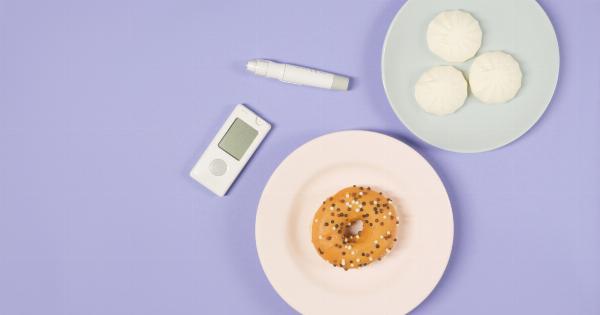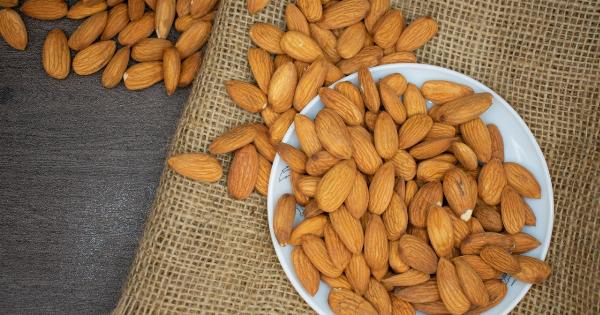Uric acid is a compound that forms when the body breaks down purines, which are substances found naturally in some foods. Normally, uric acid dissolves in the blood and gets excreted from the body through urine.
However, excessive accumulation of uric acid can lead to a condition known as hyperuricemia. This can result in the formation of sharp, needle-like crystals in the joints, leading to intense pain and inflammation known as gout. Managing uric acid levels is crucial for individuals experiencing gout attacks to find relief from pain.
One way to do this is by avoiding certain foods and drinks that can trigger or exacerbate gout symptoms. In this article, we will explore some of the common culprits and suggest alternatives to help you control uric acid levels and find pain relief.
1. Red Meat
Red meat, including beef, pork, and lamb, is high in purines. Consuming excessive amounts of purine-rich food can significantly contribute to an increase in uric acid levels.
As a result, individuals suffering from gout should limit their consumption of red meat. Instead, consider lean proteins such as chicken, turkey, or tofu as alternatives to meet your protein requirements without causing uric acid spikes.
2. Seafood
Seafood, especially shellfish like shrimp, crab, lobster, and mussels, contain moderate to high levels of purines.
While occasional consumption may not affect everyone, those prone to gout attacks should be wary of indulging in excessive amounts of seafood. Opt for low-purine seafood options like salmon, trout, and sardines, which are considered relatively safe and offer numerous health benefits.
3. Organ Meats
Organ meats, such as liver, kidneys, and sweetbreads, are extremely high in purines and should be strictly avoided by individuals with gout.
These meats have considerably higher purine content than other animal-based foods, making them a significant contributor to uric acid production. Replace organ meats with lean cuts of meat or plant-based protein sources to reduce the risk of gout attacks.
4. Beer
Beer is particularly notorious for triggering gout attacks due to its high purine content. It not only contains alcohol but also brewer’s yeast, which contributes to the production of uric acid.
Moreover, alcohol can impair the kidneys’ ability to eliminate uric acid from the body efficiently. Individuals with gout should avoid beer, and if occasional drinking is desired, moderate amounts of wine or spirits may be a safer alternative.
5. Sugary Beverages
Sugary beverages, such as sodas and sweetened fruit juices, have been linked to increased uric acid levels and gout risk.
Fructose, a type of sugar found in high quantities in these drinks, interferes with uric acid excretion, leading to its accumulation in the body. Switch to healthier alternatives like water, herbal tea, or freshly squeezed juices (in moderation), which can help maintain adequate hydration without the negative impacts on uric acid levels.
6. High-Fructose Fruits
While fruits generally have numerous health benefits, some contain high levels of fructose, which can contribute to elevated uric acid levels.
Fruits that are known to be high in fructose include sweetened varieties of apples, pears, grapes, and bananas. Opt for low-fructose options like berries, cherries, and citrus fruits, which not only have lower fructose content but also provide beneficial antioxidants and anti-inflammatory properties.
7. Processed Foods
Processed foods often contain additives and preservatives that not only lack nutritional value but can also worsen gout symptoms.
High levels of sodium, commonly found in processed foods, can lead to higher uric acid levels by reducing the excretion of uric acid through the kidneys. Additionally, some processed foods may contain hidden sources of purines. Choose fresh, whole foods and cook from scratch whenever possible to avoid these detrimental effects.
8. High-Fat Dairy Products
While low-fat dairy products can be beneficial for gout sufferers due to their low purine content, high-fat dairy products, like whole milk and full-fat cheeses, may need to be limited.
High levels of saturated fats can lead to increased production of uric acid. Opt for low-fat or skim milk, yogurt, and cottage cheese to reduce the risk of triggering gout attacks while still enjoying the benefits of dairy.
9. Certain Vegetables
Although most vegetables are considered safe for individuals with gout, a few contain moderate to high levels of purines and should be consumed in moderation. These include spinach, asparagus, cauliflower, and mushrooms.
However, it is essential to note that vegetal purines have less impact on uric acid levels compared to animal-derived purines. So, you don’t need to eliminate these healthy vegetables from your diet entirely; simply avoid excessive consumption.
10. Alcohol
Alcohol, in general, can raise uric acid levels in the body.
While beer is particularly harmful, other forms of alcohol, such as spirits and wine, should also be consumed in moderation or avoided altogether if you’re experiencing frequent gout attacks. Staying well-hydrated is crucial for managing uric acid levels, so if you do decide to have a drink, ensure you drink plenty of water alongside it.
By making smart dietary choices and avoiding or limiting the consumption of foods and drinks that can trigger or exacerbate gout symptoms, individuals with high uric acid levels can find relief from pain and support the management of their condition.
Remember, it is always best to consult with a healthcare professional or a registered dietitian for personalized advice based on your specific needs and medical history.































